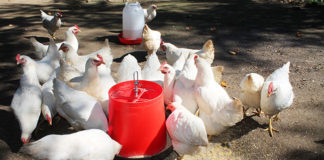Farmer’s Weekly: Access to farmworker graves is an emotive issue, and graves play a critical role in land claims investigations. Why is there such stress on farmworker graves at the moment?
Dr Troy Phili: In the absence of title deeds, graves are the only tangible representation of human settlements. In a political climate where different cultural and descent groups are reconstructing historically subverted identities, graves are used as traces of evidence.
Do certain cultural groups attach more significance to ancestral graves than others, and are these distinctions officially recognised?
TP: From a heritage point of view, the sacredness of graves among different communities isn’t equal in terms of the ritual performances that apply to them. For example, certain communities visit grave sites at certain times of the year for ancestral consultation, and use these practices as ways of passing on family history. Such graves would be accorded more importance than those not used in this way.
Are farmers the major offenders for not allowing access to graves?
TP: Obstacles to visiting ancestral graves are a common factor within the urban landscape, and in regard to mining and other commercial properties.
An instructive example would be the annual pilgrimage of amaHlubi from all over the country to ancestral graves in KZN. The main pilgrimage is to the grave of Langalibalele Mthimkhulu’s grave in the northern Drakensberg. KZN Wildlife/Ezemvelo allows people unfettered access.
However, the amaHlubi have registered a complaint that a farmer in the Ladysmith area denied them access to the ancestral grave of Mswane, a brother to Langalibalele Mthimkhulu. In Bulwer, a chief of the area has also been accused of denying access and hiding the location of another Hlubi ancestor.
Farmer’s Weekly was recently made aware of the abuse of an ancestral grave by an Mpumalanga miner. Do you receive many complaints of this nature?
TP: There have been many complaints of tampering with graves by individuals and organisations from many different sectors. There have been a number of contraventions by farmers, where graves have been deliberately destroyed for agricultural development purposes, or to erode evidence that can be used to prove a right to land. Some of the cases have been reported to the Human Rights Commission and other non-governmental agencies that represent rural communities.
If an owner of rural land wants to develop a section on which there is a burial site, is it possible to relocate graves?
TP: SAHRA recommends leaving graves in situ, where possible, fencing off and allowing controlled access during the development phase and after.
However, grave relocations within a rural setting do take place in cases of accidental disturbance of previously unknown burial sites during the course of development. The development must cease immediately and an accredited archaeologist must be engaged, following lodging a report with the police in terms of the National Health Act governing human tissues/remains, to check and verify that the site isn’t a crime scene











